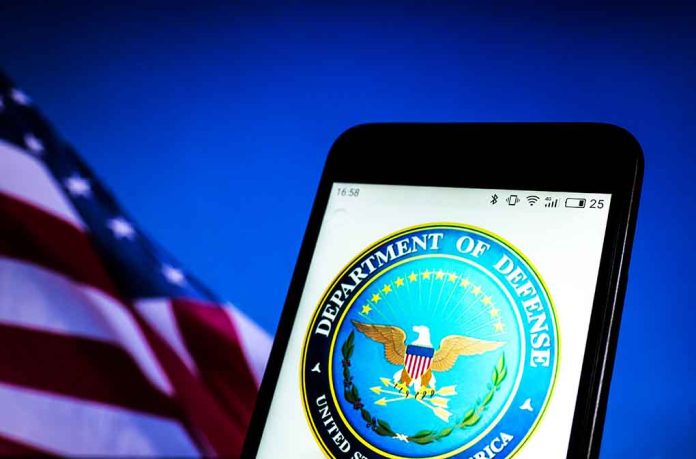
A Pentagon watchdog report calls out Defense Secretary Lloyd Austin for failing to notify Congress and the White House about his hospitalization last year, violating protocol and raising national security concerns.
At a Glance
- Defense Secretary Austin did not inform Congress or White House about his prostate cancer treatment and complications.
- Austin’s desire for privacy influenced staff decisions, leading to communication failures.
- The incident resulted in bipartisan criticism from Congress.
- The Pentagon’s inspector general criticized Austin’s team for mishandling the situation, concluding that it needlessly increased national security risks.
- The report recommends procedural changes to improve communication and prevent future issues.
Austin’s Hospitalization and Communication Breakdown
A recent report by the Pentagon’s internal watchdog focuses on a significant protocol violation by Secretary of Defense Lloyd Austin. The report covers how Austin and his deputy failed to notify Congress about his emergency hospitalization, contravening standard procedures and potentially jeopardizing national security operations.
Austin was diagnosed with prostate cancer in December 2023 and underwent surgery on December 22, later experiencing complications. Despite the severity of his condition, some staff members reported he instructed them to keep his hospitalization private, though he later denied this claim. The lack of communication surrounding his condition left Congress and top Pentagon leaders unaware of his hospitalization for days.
Defense Secretary Lloyd Austin failed to tell Congress or the White House about his health problems as required, report sayshttps://t.co/QyDaC3oEE3 pic.twitter.com/HthCy05BAf
— The Washington Times (@WashTimes) January 16, 2025
Criticism and National Security Concerns
The Pentagon’s Office of the Inspector General (OIG) criticized Austin’s team for mishandling the situation. Inspector General Robert Storch emphasized the gravity of the matter, stating:
The “ability for the DoD and the government to operate seamlessly and the continuity of leadership under any and all circumstances are fundamental to our national security.”
The report highlighted failures in notifying key officials and transferring job authorities, which unnecessarily increased national security risks. While no adverse consequences were found, the OIG noted that the risks to national defense operations were elevated without justification.
Austin’s Response and Aftermath
In the wake of the incident, Austin faced bipartisan criticism during a congressional hearing. He apologized for not informing President Biden and others, acknowledging that he should have handled the situation differently. Austin’s chief of staff, Kelly Magsamen, expressed concerns about the secrecy in text messages, emphasizing the importance of transparency due to Austin’s role:
“I wish [Secretary Austin] were a normal person but he’s the [secretary of Defense]. We have a big institutional responsibility. He can’t just go totally dark on his staff. … Please pass to him that we can’t keep his hospitalization a secret forever. It’s kind of big deal for him to be in [the intensive care unit].”
Recommendations and Future Actions
The OIG report suggested 20 recommendations for improvement, including widening decision-making involvement and enhancing information flow. Inspector General Storch stressed the importance of these improvements:
“While the DoD has taken some important steps to address these concerns, additional improvements are required to ensure the DoD’s readiness, transparency, and the fulfillment of its mission. These improvements are not just an administrative necessity; they are an operational and national security imperative.”
The Pentagon has stated there was no scandal or cover-up. However, a senior defense official acknowledged a notification process shortfall and Austin’s delay in informing President Biden of his cancer diagnosis. As the Department of Defense moves forward, implementing these recommendations will be crucial to prevent similar incidents and maintain the integrity of national security protocols.
Sources
- Austin failed to tell Congress or White House about his health problems as required, report says
- Pentagon watchdog finds Austin hospitalization scandal increased security risks
- Pentagon Watchdog: Defense Chief Violated Protocol













